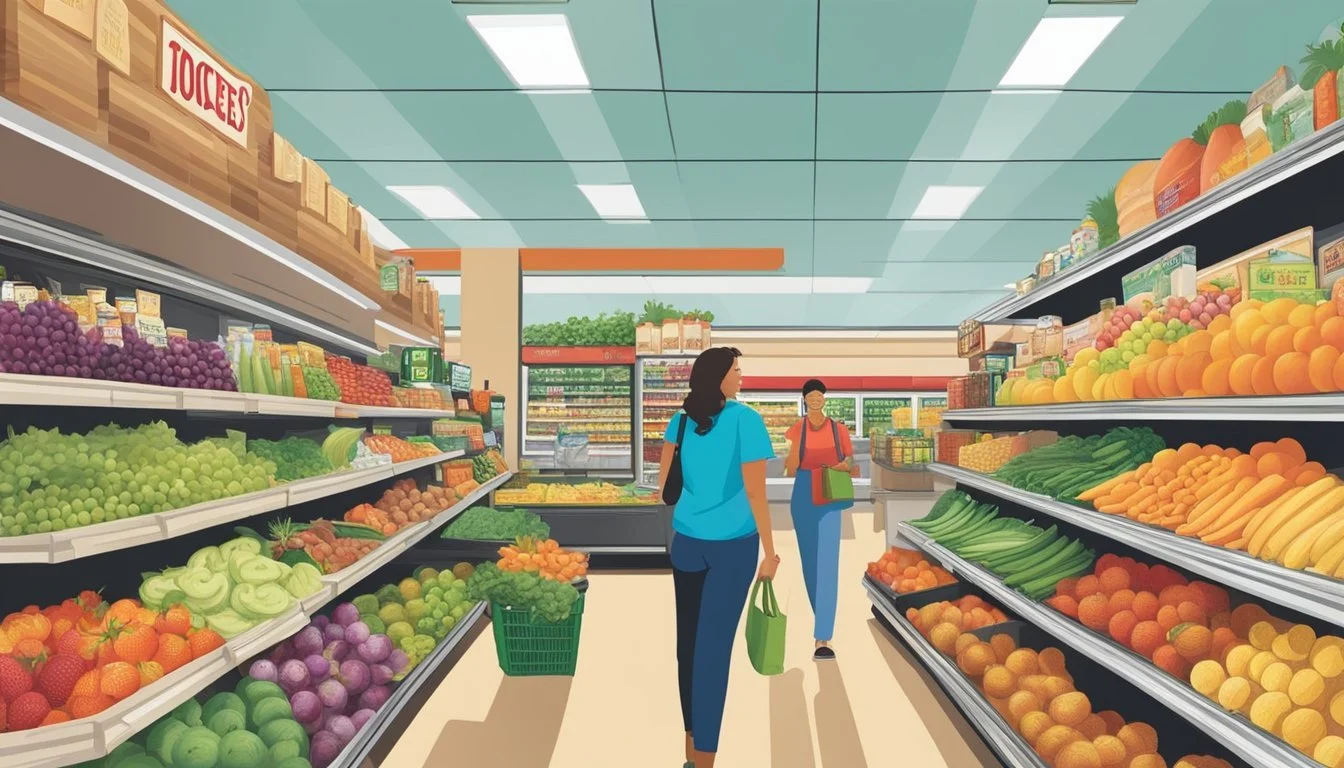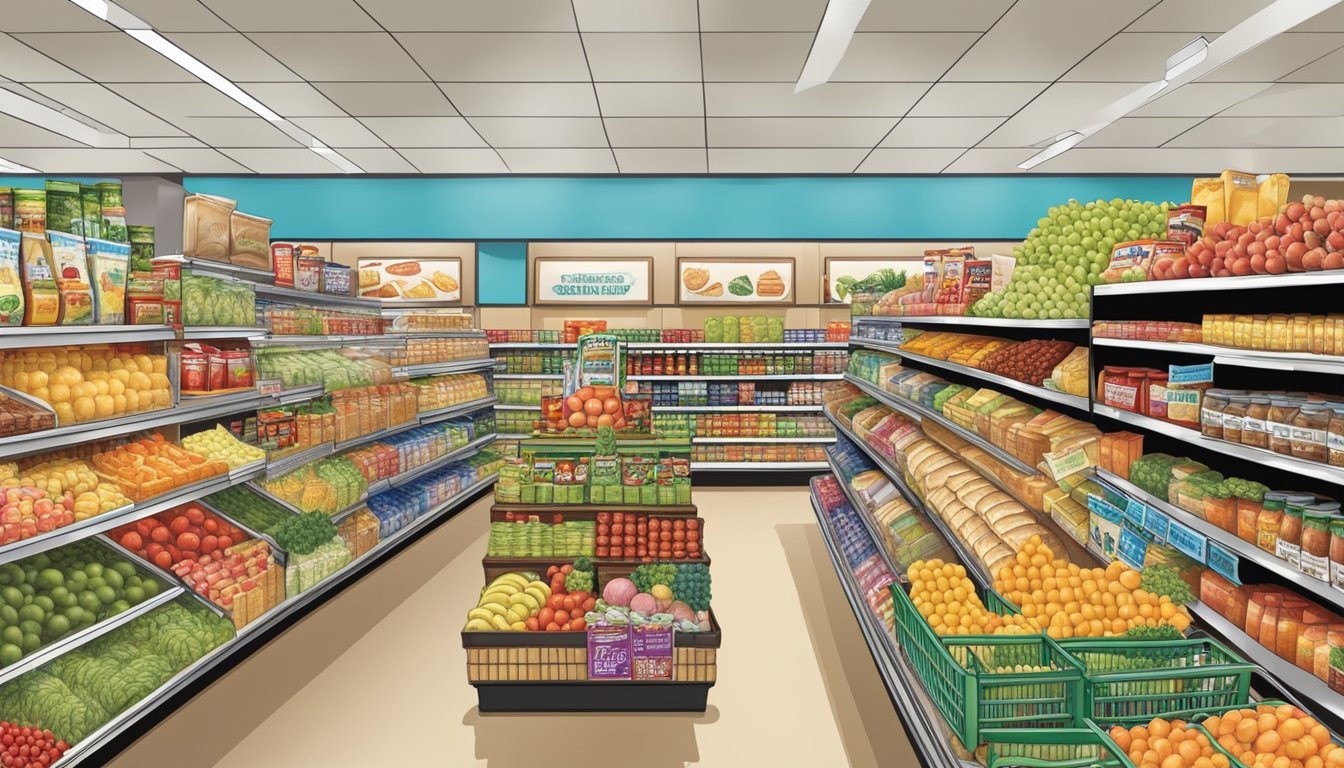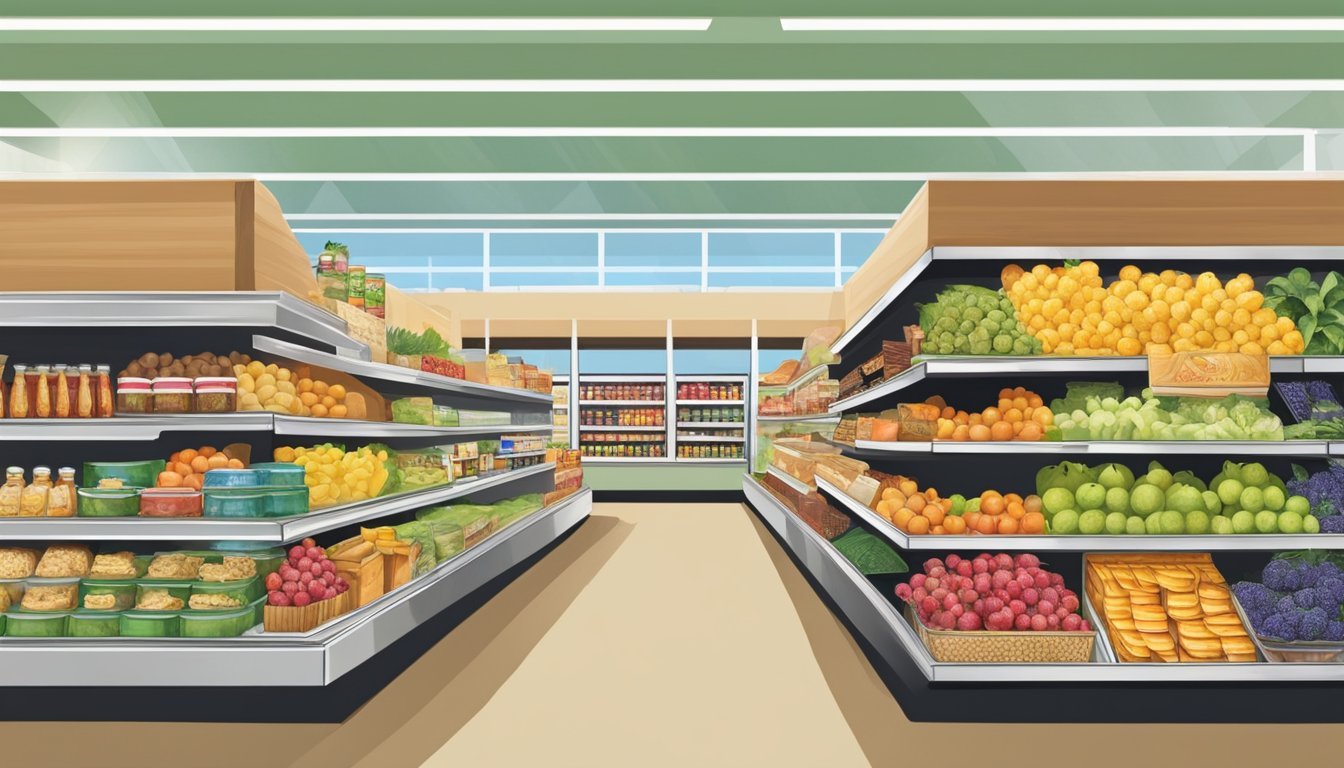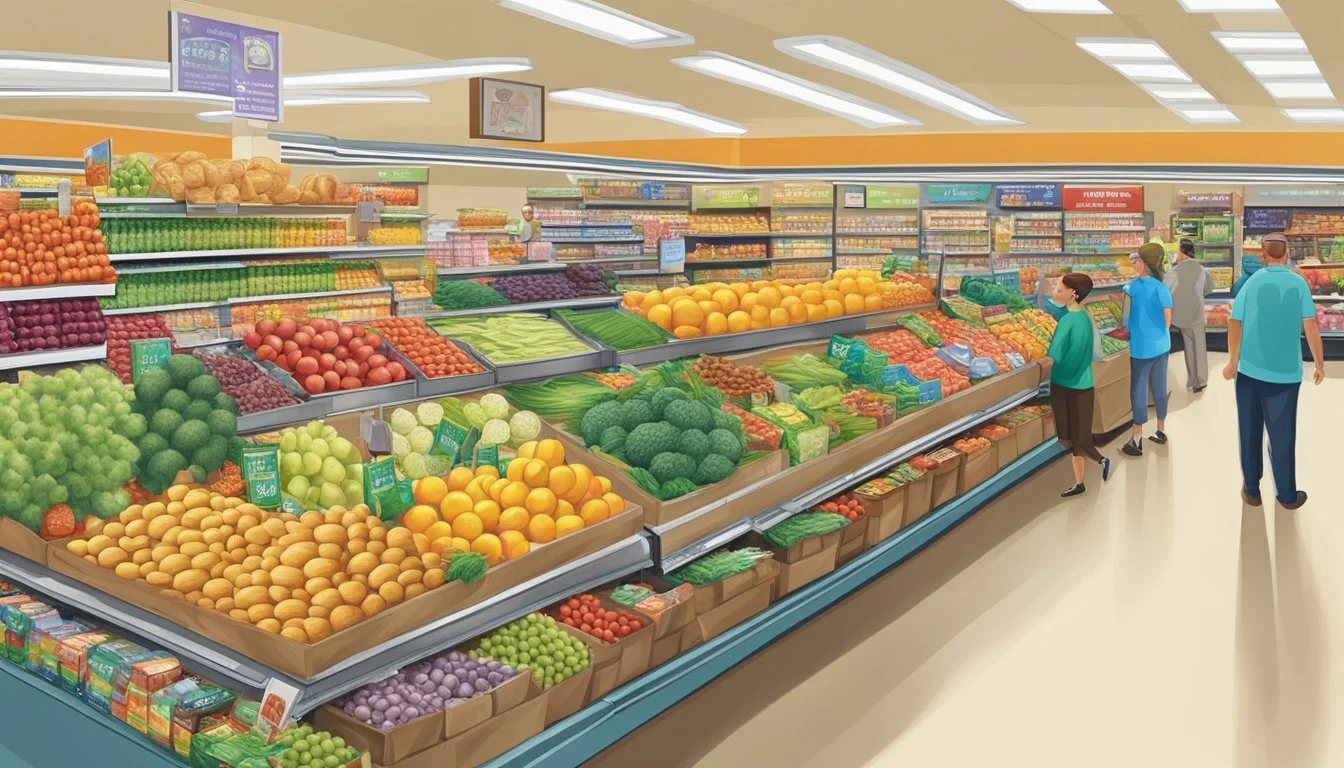Trader Joe's vs Food Lion
A Comprehensive Comparison of Grocery Stores
Part of Our Grocery Store Guide with Details on Trader Joe's and Food Lion
When shoppers consider where to purchase their groceries, the debate often comes down to not just the cost but the overall shopping experience. Trader Joe's and Food Lion are two prominent grocery chains in the United States, each offering a distinct approach to meeting consumer needs. Trader Joe's, a specialty retail grocery store, prides itself on its unique product selection and affordable prices, often featuring a lineup of private label products. Food Lion, a more traditional supermarket, focuses on providing a wide range of brand-name goods and staples at competitive prices.
Consumers often weigh the pros and cons of shopping at these stores based on several factors. Price, quality of produce, and the variety of products available are chief among these considerations. Trader Joe's has built a reputation for its curated selection of goods, including international foods, organic options, and dietary-specific items, which come at a lower cost compared to some competitors. Food Lion, on the other hand, emphasizes its commitment to freshness, neighborhood convenience, and a more conventional supermarket layout that some customers might prefer.
Company Profiles
In providing a comprehensive comparison, the histories and foundations of Trader Joe's and Food Lion are pivotal. Their backgrounds offer insights into the unique qualities and market approaches that have shaped their operations and consumer relationships.
History of Trader Joe's
Trader Joe's began as a small chain of convenience stores called Pronto Markets in 1958. In 1967, Joe Coulombe rebranded the stores to Trader Joe's and positioned them as novel, providing a unique array of goods that catered to a well-educated, cultured customer base. The store's distinctive nautical theme and a focus on private label products have become hallmarks of the brand. With its competitive pricing on gourmet and organic items, Trader Joe's has since evolved into a beloved grocery chain with a devoted following.
History of Food Lion
Food Lion was established in 1957 under the name Food Town, a single grocery store in Salisbury, North Carolina. Through strategic expansion and a customer-centric focus, the company rapidly grew in size and scope. In 1980, it was renamed Food Lion, a change prompted by its aggressive growth and entry into new markets. Food Lion prides itself on providing an affordable, convenient shopping experience and has made its mark by focusing on low prices and a wide assortment of goods, growing to hundreds of stores predominantly situated in the Southeastern and Mid-Atlantic United States.
Store Brands and Exclusive Products
Trader Joe's and Food Lion offer distinctive store brand options that cater to their customers' preferences, with Trader Joe's known for its unique variety and Food Lion for its competitively priced selections.
Trader Joe's Unique Offerings
Trader Joe's has built a loyal customer base through offering an expansive array of private label products that often cannot be found at other supermarkets. They are particularly known for their Trader Joe's brand items, like the renowned Mandarin Orange Chicken, which has garnered a following for its taste and convenience. The store's focus on unique and eclectic fare extends to a wide range of global flavors and includes seasonal products that create a sense of novelty and excitement for shoppers.
Popular Trader Joe's Brand Items:
Mandarin Orange Chicken
Seasonal cookies and snacks
Diverse global cuisine choices
Trader Joe's commitment to exclusive branding means most of its products are sold under the Trader Joe's name, making it a go-to destination for those seeking distinct flavors and innovative grocery items.
Food Lion's Selection
Food Lion, while offering a smaller selection of unique store brand items compared to Trader Joe's, emphasizes value and affordability in its store brand approach. Their selection includes everyday essentials that are priced competitively, often positioned as lower-cost alternatives to national brands without compromising on quality. Shoppers have recognized Food Lion's store brand products as reliable options for sticking to a budget.
Highlights of Food Lion's Store Brand:
Everyday essentials at affordable prices
Comparable quality to national brands
Food Lion finds its strength in offering cost-effective solutions for daily grocery needs, ensuring that their customers have access to a range of products that balance price and quality in their store brand lineup.
Product Variety and Quality
When comparing the product variety and quality of Trader Joe's and Food Lion, customers will find distinct differences in organic and specialty item availability, as well as meat and produce quality.
Organic and Specialty Items Availability
Trader Joe's has a reputation for a wide selection of organic and specialty products. Their shelves are frequently stocked with a variety of organic options ranging from produce to packaged goods. Specialty items, such as international foods and an assortment of dried fruit, are prominently featured and cater to a more eclectic taste. Food Lion also provides organic produce and products, but the range may not be as extensive as that of Trader Joe's.
Trader Joe's: Broad organic selection, extensive specialty items.
Food Lion: Adequate organic options, standard specialty selection.
Meat and Produce Quality
The quality of meat and poultry at Trader Joe's often receives high marks for freshness and variety. They offer a range of meat products, including options for those looking for hormone-free or organic meats. Trader Joe's also tends to have a consistent supply of fresh produce, which includes organic produce.
Food Lion's quality of meats and produce can vary by location but generally provides standard quality staples expected from a typical grocery store. They offer an array of meat and poultry, though their organic meats selection may be less comprehensive compared to Trader Joe's.
Trader Joe's:
Meats: Often organic/hormone-free, diverse selection.
Produce: Fresh, including organic options.
Food Lion:
Meats: Standard quality, less varied organic choices.
Produce: Generally fresh, basic organic selection.
Pricing Strategies
When evaluating grocery stores like Trader Joe's and Food Lion, customers often prioritize finding the best value for their budgets. Both retailers deploy distinct pricing strategies aimed at offering savings and value, although their approaches may differ.
Comparison of Everyday Prices
Trader Joe's tends to offer competitive pricing with a focus on providing value through their private label products. Customers have come to expect consistent low prices on these items across the board. For example, Trader Joe's Unexpected Cheddar Cheese has garnered a reputation for being an affordable yet high-quality product typical of the chain.
Food Lion, on the other hand, offers competitively priced national and store brand products within its conventional supermarket format. Its pricing on everyday items often seeks to undercut other grocery competitors to draw in cost-conscious shoppers.
A price comparison conducted by an independent study might illustrate these differences as follows:
Item Trader Joe's Price Food Lion Price Unexpected Cheddar Cheese $3.99 $4.29 Organic Milk (1 gallon) $5.49 $5.99 Free-Range Eggs (dozen) $2.69 $2.89
Deals and Savings Programs
Trader Joe's strategy does not include traditional sales or weekly ads. They offer low prices that they maintain every day, which aligns with their straightforward approach to savings without the need for loyalty programs or coupons.
Food Lion brings traditional savings programs to the table. They utilize:
Weekly Specials: Regular sales on various items published in a weekly ad.
MVP Savings Hub: This is a section in the store and online where customers can find digital coupons, personalized deals, and rewards to enhance their saving potential.
Bulk Savings: By offering larger pack sizes or buy-one-get-one-type deals, Food Lion encourages bulk shopping, which can result in longer-term savings for customers.
Both retailers have structured their pricing strategies with the consumer's budget in mind, yet Trader Joe's and Food Lion tailor their approach to different shopping preferences and ideals.
Shopping Experience
In evaluating the shopping experience of Trader Joe's versus Food Lion, one considers factors such as store layout, design, and customer service. These aspects shape the consumer's perception and can be pivotal for their loyalty and satisfaction.
Store Layout and Design
Trader Joe's is renowned for its distinctive store layout and design embellished with a nautical theme, which creates a unique and enjoyable atmosphere. Their stores typically have smaller square footage than traditional supermarkets, which contributes to a cozier feel. The aisles are well-organized, and the lighting is designed to provide a warm and welcoming ambiance. Most products are Trader Joe's own brands, which simplifies the shopping experience by limiting the paradox of choice for consumers.
Food Lion, on the other hand, follows a more conventional grocery store layout. The design is functional with wider aisles and more product variety from different suppliers. Lighting in Food Lion stores is adequate, providing a bright and clear view for customers, although it may lack the same intimate vibe of Trader Joe's.
Customer Service Assessment
Customer service at Trader Joe's is highly regarded, with employees known for their friendly, laid-back approach that makes shopping a joy. The staff are well-trained, knowledgeable about the products, and are often enthusiastic about helping customers. Trader Joe's marketing strategy places a significant emphasis on customer experience, which shows in their service quality.
Food Lion's customer service is efficient and generally satisfactory. Employees are helpful and courteous, ensuring customers receive the assistance they need. However, the interaction may not feel as personalized as Trader Joe's, wherein employees tend to add an additional level of engagement with shoppers through their service.
Consumer Convenience
In evaluating Trader Joe's and Food Lion, it's essential to consider how accessible these stores are and the shopping services they provide, as these factors greatly influence a customer's grocery shopping experience.
Location Accessibility
Trader Joe's has a reputation for selecting prime locations that are typically in urban or densely populated suburban areas, making it convenient for a significant portion of its customer base. The store count, however, is more modest compared to some competitors, with Trader Joe's operating over 500 stores nationwide.
On the other hand, Food Lion serves a broader geographical area, particularly in the mid-Atlantic and Southeastern regions of the United States, operating over 1,100 stores. Their larger presence makes them more accessible to individuals living outside major metropolitan areas.
Online Shopping and Delivery Services
Trader Joe's does not offer an online shopping platform for groceries, nor does it provide a grocery delivery service, remaining steadfast in encouraging shoppers to visit their brick-and-mortar locations to gain the full experience.
Conversely, Food Lion has embraced digital advances in the grocery market, offering online shopping through their Food Lion To Go service. They facilitate shopping convenience with same-day pickup and delivery in partnership with Instacart. For Amazon Prime members, other grocery providers linked with Amazon offer prime benefits, but Trader Joe's and Food Lion are not a part of the Amazon Prime program, hence, prime-specific deals and delivery advantages are not available with these two stores.
Brand Reputation and Customer Loyalty
In the competitive landscape of grocery retail, Trader Joe's and Food Lion each cultivate distinct brand reputations which greatly influence their customer loyalty. These reputations are built through customer perceptions and loyalty factors that shape the shopping experience.
Customer Perceptions
Trader Joe's is perceived favorably for its unique shopping experience and competitive pricing. It targets customers who value quality at a reasonable price, such as those who may be price-sensitive but also appreciate organic and specialty products not commonly found in traditional supermarkets. The brand’s strategy to appeal to "overeducated and underpaid" customers has resulted in a strong market position.
In contrast, Food Lion operates with a focus on value and convenience, aiming to serve a broader segment of the market, including price-conscious families who prioritize affordable prices over the niche appeal of Trader Joe's. Food Lion competes directly with larger chains like Walmart and regional players like Publix, with a perception more in line with conventional grocery stores than specialty retailers.
Brand Loyalty Factors
Trader Joe's boasts a high level of brand loyalty, facilitated by:
Competitive pricing
A distinctive product selection
A successful customer segmentation strategy.
Trader Joe's consistently ranks highly for customer loyalty in comparison to other grocers such as Wegmans, Aldi, and Publix, which also perform well in customer experience indexes.
Food Lion, while having a strong presence in the Southeastern United States, focuses on loyalty through:
Frequent sales and promotions
A rewards program that offers value for money spent.
However, it directly competes with retailers like Walmart and Target, which have a significant market share and resources to attract a wide customer base.
Both Trader Joe's and Food Lion have their merits, but the former's focused approach on a unique brand experience tends to engender greater customer devotion, setting it apart from standard grocery offerings such as those of Food Lion.
Environmental and Ethical Considerations
Trader Joe's and Food Lion, as significant players in the grocery sector, have been scrutinized for their environmental and ethical practices. Their approaches to sustainability, organic offerings, and impact on local and global communities are increasingly important to conscientious consumers.
Sustainability Initiatives
Trader Joe's: The grocery chain has faced mixed reviews for its sustainability efforts. Despite a reputation for high sales per square foot, it has scored relatively low on scorecards for its use of plastics. However, it is also noted for maintaining sustainability as part of its operations, including offering organic options and upholding a diverse product range.
Plastic Use: Ranked 13th by Greenpeace in 2021 with a score of 14.32 out of 100.
Organic and Private Label: Offers numerous organic options and private labels to reduce costs and resources.
Food Lion: Known for addressing major ethical issues, Food Lion has received commendable scores for its attention to critical concerns like child labor and deforestation.
Ethical Scores: High ratings for combatting child labor, deforestation, and poverty.
Efforts In Quality and Service: Commended for its quality produce and customer service while maintaining ethical standards.
Local and Global Impact
Both grocery stores extend their influence beyond the local environment with differing impacts.
Trader Joe's typically operates smaller stores relative to standard supermarkets. This potentially lowers resource usage and impacts, aligning with a more sustainable model.
Food Lion demonstrates its commitment to social issues that affect farming communities globally, such as through efforts to address poverty, indicating an awareness of its broader impact in the supply chain.
Food Choices and Quality:
Trader Joe's: Selection often includes diverse offerings, attracting consumers interested in unique and organic food items.
Food Lion: Ensures produce quality while balancing ethical considerations with service.
When consumers choose where to shop, they weigh these environmental and ethical considerations alongside quality, service, and food options. Both Trader Joe's and Food Lion have established practices that suggest a commitment to these values, but they do so in varied manners and with differing degrees of transparency and success.
Conclusion
When comparing Trader Joe's and Food Lion, shoppers' preferences boil down to value, product selection, and shopping experience. Trader Joe's excels with its private label products, offering a variety of unique and gourmet items at competitive prices. Their commitment to high-quality, affordable staples such as fancy cheeses and wine has garnered a loyal customer base.
Food Lion, on the other hand, stands out for its cost savings. Shoppers looking to stretch their dollar further may find Food Lion's prices preferable, with surveys suggesting a family could save significantly on their grocery bills each year when choosing Food Lion over other chains.
In terms of the shopping experience, Trader Joe's offers an environment that is both enjoyable and set up to encourage the discovery of new products. The store's atmosphere and curated selection may provide a sense of adventure to the routine of grocery shopping.
Ultimately, the decision between the two stores may hinge on an individual's priorities:
For a varied and interesting array of food items with a focus on quality and value, Trader Joe's is a strong contender.
If the primary concern is budget and the aim is to find the most economical options, Food Lion is likely the better choice.
Each grocery chain has its strengths, and the better option will depend on what the customer values most in their grocery shopping experience.









